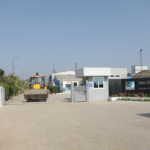Wondering if an NRI in Abuja, Nigeria can do Fixed Deposit in India?
This article will surely give some credible solutions to your problems. The article below will discuss NRI Fixed Deposit: NRI FD, FD rates. So, if you are an NRI in Abuja, Nigeria and wondering how you can make a Fixed Deposit in India, you are at the correct place. We will request you to read the article till the end to get complete information about NRI Fixed Deposit: NRI FD, FD rates for NRIs in Abuja, Nigeria
First of all, you should know that, unlike other resident Indians, a Non-Resident Indian (NRI) is not permitted to open an ordinary Account. The guidelines of the Foreign Exchange Management Act (FEMA) obstruct NRIs from opening a normal bank account. No one is allowed to violate this rule and if someone is found violating the rule then they are subjected to a huge penalty. Above all the Account holder will not receive any interest if the Account is closed within a year.
Can Non-Resident Indians (NRI) in Abuja, Nigeria have Fixed Deposits in India?
Now you must be thinking that if an NRI is not subjected to holding a normal bank account then how he/she will be able to make a Fixed Deposit?
The answer to this question is that an NRI in Abuja, Nigeria can have a Non-Resident External Account if he/she wishes to make Fixed Deposit in India. Talking about (NRE) Non-Resident External Account banks they can be of different types like – savings, recurring or Fixed Deposits.
Non-Resident External Accounts (NRE) are the bank accounts opened for the convenience of NRIs where they can deposit their foreign currency swiftly. And the best part is that their foreign currency will get remitted to an Indian bank account. The Non-Resident External Account (NRE) is held in Indian currency (rupees) and you will be amazed to know that it is completely tax-free. The article will be discussing the best NRI Fixed Deposit: NRI FD, FD rates for NRIs in Abuja, Nigeria available in India.
Who is a Non-Resident Indian (NRI)?
As per the guidelines of the Income Tax Department of India a person who is a citizen of India or a person of Indian origin and not a resident of India will be considered a Non-Resident Indian (NRI). So, to determine whether a person is a Non-Resident Indian or not one needs to determine his/her Resident status under Section 06.
According to Section 06 of the Income Tax Act,A person will be considered NRI if he/she is not residing in India or the individual is deemed to be residing previously in India. A person who fulfils the below-given conditions then only he/she will be considered an NRI.
- If the person was in India for 182 days or more than that during the previous year then he/she will be considered an NRI or,
- If the person is in India for 60 days or above than that during the previous years and 365 days or more than that during 4 years immediately preceding the previous year.
In the case of a person of Indian origin or an Indian citizen who visits India during a year, the 60 days mentioned in the second point shall be substituted with 182 days. A similar concession will be provided to any individual who migrated from India in any previous year for employment. However, the Finance Act 2020 (The assessment year 2021-22) has made the amendment by making the above exception to provide that the period of 60 days (mentioned in the second point) shall be substituted with 120 days if an Indian citizen or a person of Indian origin has a total income (income other than foreign sources) exceeds beyond Rs.15 Lacs in the previous year. Income from foreign sources in the clause includes the income which arises outside India. Here the income generated from a business controlled in or a profession set up in India is a complete exception.
NRIs in Nigeria
Nigeria is a country on the west coast of Africa.. Nigeria’s terrain is varied, with climates that range from dry to humid tropical. On the other hand, Nigeria’s people are its most diversified aspect. Yoruba, Igbo, Fula, Hausa, Edo, Ibibio, Tiv, and English are among the hundreds of languages spoken in the nation. Natural resources abound throughout the nation, including substantial amounts of petroleum and natural gas.
Abuja, the national capital of Nigeria is located in the Federal Capital Territory, which was established in 1976 by decree. Lagos, the country’s former capital, continues to be the country’s most important commercial and industrial centre.
Capital:- Abuja
Population:- 225,954,000(2021 Est.)
Official Language:- English
Total Area:- 923,768(Sq Km)
Monetary Unit:- Nigerian naira (₦)
The British Empire included both India and Nigeria. The British imported Indians to Africa to help establish the continent’s rail network. During the Nigerian Civil War, however, the majority of the Indian community, as well as other foreigners from across the Empire, fled to the United Kingdom, the United States, or their home countries. India, with a fast-growing and robust economy that now ranks fifth in the world, has invested over USD 15 billion in Nigeria. Over 85 well-known Indian companies have established operations in Nigeria, providing jobs and opportunity for Nigerians.
Land
Nigeria is surrounded by Niger to the north, Chad and Cameroon to the east, the Gulf of Guinea of the Atlantic Ocean to the south, and Benin to the west. With an area larger than Texas in the United States, Nigeria is Africa’s most populous country.
Nigeria’s terrain is characterised by lowlands in the north and south, which are punctuated by plateaus and hills in the centre. The Sokoto Plains are located in the country’s northern region, while the Bornu Plains in the northeastern part stretch all the way to the Lake Chad basin. Soft, geologically young sedimentary strata underpin the Lake Chad basin and coastal regions, including the Niger River delta and western sections of the Sokoto region in the extreme northwest.
Economy of Nigeria
Nigeria has one of Africa’s greatest economies. It has been predominantly based on the petroleum sector since the late 1960s. Since 1973, a succession of rises in global oil prices has resulted in strong economic expansion in transportation, building, industry, and government services. As a result of the enormous inflow of rural people into the major cities, agricultural productivity stalled to the point where cash crops like palm oil, peanuts (groundnuts), and cotton were no longer important export commodities. Furthermore, starting about 1975, Nigeria was compelled to import essential foods like rice and cassava for local use.
Cultural life
Nigeria’s diverse cultural heritage is a result of the country’s ethnic groups mixing with Arabic and Western European influences. Traditional culture meets international urban sophistication in this country. Secret societies, such as the Igbo’s Ekpo and Ekpe, were once used as government instruments, while other institutions were linked to matrimony. Rival suitors were subjected to the ordeal of caning as a means of eliminating those who were less persistent, according to the Fulani custom of sharo.
Difference between a Non-Resident External Account (NRE) and a Non-Resident Ordinary Account (NRO) for NRIs in Abuja, Nigeria

It gets very difficult to choose when you have plenty of insurance offers in the industry so you have to choose very smartly. For choosing a suitable option for yourself you need to do a significant amount of research and see which one best suit your requirements. A correct investment option will help you in getting higher returns depending on your preferences and requirements.
Non-Resident External (NRE) Accounts and Non-Resident Ordinary (NRO) Accounts are two Account options available for NRIs in Abuja, Nigeria. Both of them are quite popular and you can try your hands on them if you want to save and get high returns. If you are confused between the two and don’t know what to choose for yourself then below are some of the basic demarcations between the two types of bank accounts.
What is a Non-Resident External Account (NRE) and a Non-Resident Ordinary Account (NRO) for NRIs in Abuja, Nigeria?
NRE Accounts help an NRI in Abuja, Nigeria in transferring his/her foreign income to India, in any denominations but it should be converted into Indian currency (Rupees). On the other hand, NRO Accounts help an NRI in Abuja, Nigeria managing its income earned in India. Remember that the income earned should be in Indian denominations.
What is the transferability of a Non-Resident External Account (NRE) and a Non-Resident Ordinary Account (NRO) for NRIs in Abuja, Nigeria?
You should know that money and deposits in NRE Accounts are transferable which means that it is repatriable. Besides this, the earned interest and the principal amount in NRE bank accounts are free and completely transferable. While the funds in NRO Accounts are transferable after the payment they will be taxed within the set limit (USD 1million) in a financial year.
Is it authentic to open a Non-Resident External Account (NRE) and a Non-Resident Ordinary Account (NRO) joint Account for NRIs in Abuja, Nigeria?
In the case of NRO Accounts, you can open a joint NRO Account with a Non-Resident Indian or a resident Indian. However, you can open an NRE Account only with a Non-Resident Indian.
What you should choose between a Non-Resident External Account (NRE) and a Non-Resident Ordinary Account (NRO) for NRIs in Abuja, Nigeria?
If you are an NRI in Abuja, Nigeria who desires to hold or mainstream their income earned overseas in Indian currencies then NRE Accounts are best suited for you. On the other hand, if you want to save your earnings in Indian denominations itself then NRO Accounts are ideal for you. Besides this savings in NRO Accounts include property sales, rent, dividends, and many more.
Tax and deposits in a Non-Resident External Account (NRE) and a Non-Resident Ordinary Account (NRO) for NRIs in Abuja, Nigeria
NRE Accounts have tax-free deposits when it comes to tax. Above all the interest that you will earn and your principal sum is also exempted from tax. While the interest earned in NRO Account deposits is taxable. The interest is subjected to a Tax deduction and you can avail it at the Tax deduction source.
Regarding the deposits NRE Accounts allow the depositor to make deposits only in foreign currency. While NRO Accounts accept deposits in Indian currency (Rupees) as well as foreign currency.Besides this, both NRE and NRO bank accounts allow withdrawals in Indian currency (Rupees).
The NRE Accounts are a bit susceptible to risk while NRO Account deposits are non-susceptible to risks. Along with this, the NRE bank deposits are vulnerable to the fluctuations of the exchange rate and loss of conversion while NRO bank deposits are not vulnerable to fluctuations of the exchange rate and currency.
Features of Non-Resident External Fixed Deposit Account(NRE-FD) for NRIs in Abuja, Nigeria
Following are the features of a Non-Resident External Fixed Deposit Account (NRE): –
- One can deposit money in Indian Currency in NRE FD Accounts.
- The process of closing an NRE FD Account is simple and hassle-free and one can close it any time after opening.
- You can get up to 90% overdrafts over the NRE FDs in some banks.
- In some banks, you can get a joint NRE FD Account.
- The banks provide tax saver FD Accounts to the NRIs that make them eligible to claim tax benefits according to the Income Tax Act.
- Banks also have stipulations regarding the minimum and maximum amounts over the deposits.
- NRE FD Accounts plan provides flexible tenures that may range from one year to over ten years.
- The banks also facilitate you by providing the facility of auto-renewal at the time of maturity.
- You can also get a loan against NRE FD Accounts.
- Nomination is allowed under NRE Accounts.
Eligibility criteria to receive a Non-Resident External Fixed Deposit Account(NRE-FD) for NRIs in Abuja, Nigeria
To get an NRE Fixed Deposit one needs to fulfil the two below-given criteria: –
- If you desire to open an NRE Fixed Deposit then either you must need to be an Indian or a person of Indian origin/Non-Resident Indian (NRI).
- Besides this, you need to have a Non-Resident External Account then only you will be able to make a Fixed Deposit in India.
Important Documents Required for NRIs in Abuja, Nigeria
The opening of a Non-Resident External Account (NRE) is a simple process you need to submit the below-mentioned documents to open an NRE Fixed Deposit Account.
- You need to submit valid identity proof.
- Next, you need to submit your passport(First Four Letters-Pages mentioned his/her name, photograph, date of birth, address, expiry date,Date and place of issue and Signature on the passport)
- They need your valid work visa/ Residence permit
Why you should get a Non-Resident External Fixed Deposit Account(NRE-FD) for NRIs in Abuja, Nigeria?
There are many reasons for getting a Non-Resident External Fixed Deposit Account(NRE-FD) for NRIs in Abuja, Nigeria, they are as follows: –
First of all, being an NRI, you are completely eligible for opening an NRE Fixed Deposit Account in India and you can earn good interest if you choose wisely.
The bank will facilitate you by availing you of the facility of overdraft and loan against Fixed Deposit so that you can have money when required.
In NRE Fixed Deposits the bank will provide you with the facility of the nominee.
The Fixed Deposits can also work as a ready fund in case of urgency as the NRE Fixed Deposits can be closed prematurely.
Interest Rates for NRE/NRO Fixed Deposits for NRIs in Abuja, Nigeria
The policy of loan against a Non-Resident External Fixed Deposit Account (NRE-FD) for NRIs in Abuja, Nigeria
Financial problems cannot be predicted and during any financial crisis loan against Fixed Deposits from banks is a reliable source. You can get a short-term loan by doing Fixed Deposits. A person needs to have a Non-Resident External Account for making a Fixed Deposit and you can easily apply for a short-term loan in your NRE bank.
An NRI can deposit its money in its NRE bank account in the form of savings or investments as they offer better returns. You should know that you are allowed to make NRE deposits only in Indian currency (Rupees). The bank will facilitate you by providing complete transferability and on top of that, the interest you will earn will also be exempted from the taxes.
Below given are the key features of getting a loan against NRE Fixed Deposit: –
- One is eligible to get the loan for any type of business activity, for buying flat/property in India, or for meeting other financial crises.
- The bank will provide loans to the depositor only.
- Remember that an NRE Fixed deposit in not permissible for premature withdrawal if an overdraft is outstanding on the account.
- You can receive the loan in Indian Currency or Foreign Currency depending on your requirement against NRE Account deposits.
- The interest rate will be charged at monthly intervals and the interest rate will be charged in both Indian currency and foreign currency.
Eligibility criteria to get a loan against a Non-Resident External Fixed Deposit Account(NRE-FD) for NRIs in Abuja, Nigeria
To become eligible for getting a loan against a Non-Resident External Account you need to fulfil the following criteria: –
The person who is investing should have his/her name, photograph, date of birth, address,expiry date,Date and place of issue and Signature on the passport.
The person needs to have an NRE deposit Account in single name(Holder) only with six months of Minimum residual period.
Lastly, the visa documents submitted by the investor should have a work permit, visa for permanent residence, residence permit, or employment visa.
Benefits of having a Non-Resident External Fixed Deposit Account(NRE-FD) for NRIs in Abuja, Nigeria

Advantages of having an NRE Fixed Deposit Account for NRIs in Abuja, Nigeria: –
- In India both the principal amount and the interest earned are tax-free.
- The interest you will earn and the principal amount will be freely repatriable to the country of your residence.
- You can get your NRE Fixed Deposit under the deposit insurance and Credit Guarantee Corporation insurance besides this you will receive a compensation of up to Rs. Five lakhs if the bank defaults.
- NRE Fixed Deposit tenure is completely flexible and it can range from one year to over ten years.
- You can also have a joint NRE Account with other NRIs.
- Above all, you will receive a higher interest rate as compared to savings Accounts.
That’s it about the NRI Fixed Deposit: NRI FD, FD rates for NRIs in Abuja, Nigeria. We know that it gets very tricky as well as difficult when it comes to finding the best option for yourself when you have plenty of options and Fixed Deposits in India are no exception. There are a variety of Fixed Deposit deals in India that can confuse you about what to pick. Several banks have their branches in foreign countries so you should check whether the bank account is operable from your resident country.
We believe this article has helped you in getting some clarity about NRI Fixed Deposit: NRI FD, FD rates in India for NRIs in Abuja, Nigeria. In case you still have any queries regarding NRI Fixed Deposit in India then feel free to ask your concerns in the comment section. We will try to provide you with the answer to all the Fixed Deposit related queries as soon as possible. For further improvement don’t forget to drop your valuable feedback in the comment section. And for more Fixed Deposits or investment-related articles like this please subscribe to the website.








































